The “Us” of Town Hall
In both structure and content, Caridad Svich’s new script Town Hall overtly acknowledges the double truth of theatre: it is always both fiction and the reality of the moment. Many plays do this, of course. But Town Hall does so as both admission and assertion that there is no other way to move forward. In both the world of the characters and the world of the audience, we must admit to our togetherness. We must admit to the fictions we are creating. We must turn towards each other and listen.
When I read Town Hall, my first reaction was: Yes. Yes, this is where we are. Yes, this is how it feels. Yes, this is what we want to be talking about. Yes, this is the way to do it. Caridad describes the play as an intimate-epic. In a largely empty room in a “post” world, four people come together day after day (or is it endless iterations of the same day?) to make sense of the world around them. And they are there with us.
The “us” is what hooked me. The language moves the mundane towards poetry by keeping us joined to people who are desperately determined to keep things moving forward, according to some logic that once seemed to make sense, but has since become unmoored. They persist. A holler war erupts. Beautiful inanities burst upward and float away. But for all that, it’s the us that got me.
Caridad and I sat down to talk about Town Hall in preparation for a Playspace workshop at the Lark Theatre in March 2017.
Katie Pearl: It is tempting to view your play Town Hall as a post-election response to the Trump administration. But I know you wrote this before the election.
Caridad Svich: Plays have gestation lives. A play will sit in your unconscious and every once in awhile manifest as if to say “I am here,” but it’s really just waiting for you to figure out what it is and what it could be. The first seeds of this play started in 1994 when I worked with the late Annie Castledine in England, and I began to understand something about the breath of theatre, how it enters the audience. Then in 2007, playwright Ellen McLaughlin challenged me; I said that some writing I was doing wasn’t a play because “most plays don’t behave like this.” She said: “You should put that voice in your plays. Why are you hiding it?”
Katie: So Town Hall misbehaves as a play? Dramaturgically, I’d argue it has to misbehave because the world it is emerging from (the imagined future) is broken. That world can’t really put forth a play that behaves “like a play.” What is a play in this world? And by extension: what is a town hall? What is a civic gathering? I see the brokenness as the very thing that allows the play to feel so present with itself in the room. It allows a liveness in the connection between performers and audience that is almost like a hum that fills the room.
Caridad: Another trigger for this play came in 2014 when performance artist Adrian Howells died. Although we only met once in person, I had followed his work from afar with admiration for years. Adrian’s work was intimate, and direct, portraying acts of caregiving and acts of surrender to the moment. In his works, he held his audiences, bathed their feet, swam in the pool with them, went to their houses and did their hair, sat with them in darkness, and more. As Adrian always said: “It’s all allowed.”
What is a play in this world?…What is a town hall? What is a civic gathering? I see the brokenness as the very thing that allows the play to feel so present with itself in the room. It allows a liveness in the connection between performers and audience that is almost like a hum that fills the room.—Katie Pearl
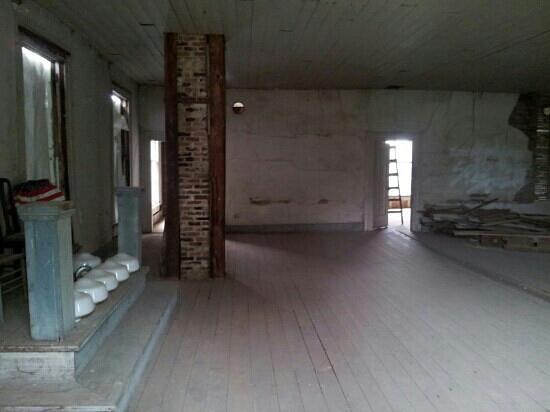
Katie: Which is not to imply Town Hall is an “audience-interaction” show! But the play does create a space where performers can become listeners and the audience becomes speakers—if they choose. I love this aspect of it. In my own work I experiment with ways to bring live conversation directly into the theatrical event...I don’t want audiences to witness a conversation, I want them to be in one. I think we’re all starving for it.
Caridad: In Town Hall, everyone is in the act of collectivity, and making a new society. How are we “us” in a room? In a theatre? How does the art object hold us, take care of us, maybe allow us to see each other again, as who we are and who we might be? I wrote an essay in 2015, “You and I: On Theatre and Audiences (with a nod to Adrian Howells),” that crystallizes how I feel about intimacy and vulnerability in live performance, which ties directly into the act of writing.
Katie: A new kind of writing requires a new kind of acting—this is a conversation I have with playwright friends all the time. The pervasive, method-inspired American acting style is tied to a kind of narrative, a kind of theatrical storytelling, that many of us are moving away from—towards an event that lives in the spaces between “theatre” and “performance.”
Caridad: The conversation between live art and theatre is often a divided one. But it doesn’t have to be. Which is why I prefer to say “work for live performance” rather than “theatre.”
Katie: “Live performance” requires a new language both for actors, and for talking about the work itself. One that effectively expresses (and is fueled by) the vitality of the relationships between, as you lay out above, including the relationship between the actor and the audience.
Caridad: It’s a language about contact and communion. What is it that someone once said about theatre? There are times when it is like going to church (nondenominational) and there are times when you realize you’re in a brothel, and somehow the holy and the bodily holy coexist, a bit like Apollo and Dionysus—or Dionysus and Dionysus, if your church revels in the bacchanal and the festival of the spirit. I like to think that Town Hall contains the holy wholly somewhere in its DNA, even if it is not always readily visible. Theatre, after all, traffics in invisible signs much more than the ones we think we see at work in the site of performance.
We know the divide in these divided states is deep. We all keep asking ourselves: What use is art? What are its uses? “Soul work,” a friend of mine says. The conversations I’ve been having recently have to do with knowing that somehow, too, we must make a quiet noise in a world of too much noise. Where do we situate ourselves as makers and text-builders through spaces of attention and care? Can we trust silence? In an upcoming collection of my works The Hour of All Things and other plays published by Intellect UK, my colleague Ian Rowlands talks about my recent body of work, and this particular play as “prayers for catastrophe.” And the more I think of it, the more I think this is true. They are nondenominational prayers, secular hymns, as it were, for and in times that feel catastrophic.
Katie: Sometimes I describe the show as a space rather than a narrative, a space of circular, ongoing presence, which is another way of saying “prayer.” And the people in that space (and perhaps the people watching it as well) are not a community. Yet in our isolation, there is connection. And there is ineptitude. And in our ineptitude there is wonder. In our wonder there is also fear, and in our fear there is also endless attempt. I think this attempt is the prayer of Town Hall. The backpedalling against the inertia of drift, of being unmoored. But the people don’t seem to know where they’re heading, or what the actual point of it all is.
Caridad: Theatre occupies the arena of moral ambiguity, not one of absolutism. Its task, in part, is to propose or provoke the audience to see if we can find “new questions to help us answer the old ones,” as Caryl Churchill said in 1960 essay “Not Ordinary, Not Safe.” If you are a writer, then you are looking for what is broken in the world. You are looking for a way to offer some healing. You don’t have answers, because you are also searching. And a part of you wants that vector point of writing to be looking past the now and into some other future time. As María Irene Fornés used to say in the writing room, “we are not writing for this century, we are writing for the next.”
If you are a writer, then you are looking for what is broken in the world. You are looking for a way to offer some healing. You don’t have answers, because you are also searching. And a part of you wants that vector point of writing to be looking past the now and into some other future time.—Caridad Svich
Katie: And the next century definitely needs us to write for them, based on how things are going right now!
Caridad: Have we been adrift, as Rachel Maddow’s book says, for a long time? And if so, what kind of drift is it? In his article on Trump’s rise, George Monbiot speaks to an exact year and exact moment: it’s 1975 and Margaret Thatcher slams a copy of Frederick Hayek’s 1960 book The Constitution of Liberty on a table. The book lays out the philosophy of neoliberalism. Its doctrines have been adopted quite readily and rapaciously since then to the point where neoliberalism has become the unquestioned socio-political “norm.” This normalization of neoliberalism has affected every level of society. It’s fascinating and tragic that there has been no counter ideology that has been able to successfully dismantle its insidious affect/effect. Until now. Perhaps. Indeed, as Monbiot remarks in his article, maybe Trump was exactly what the society of the spectacle (from my perspective) needed in order for it to recognize that reality was not reality TV, and that actually, neoliberalism is not the answer. In effect, that if humans and nature and animals are going to live more than a fifty more years, then it’s going to take all of our empathetic humanity to counter years and years of drift. And so, the beginning, however fraught, between Brexit, Trump, and the rise of nationalist, right-wing populism in countries around the globe, may be to start with a very honest, vulnerable recognition of one another as human beings, not as consumers or clients or trackable data targets, but as humans living in a fragile, precarious environment.
Katie: In other words, the only escape route leads through the structure of us, but who is the “us”? Who is the “we” in Town Hall? I’m asking here about the bodies on the stage as characters, but also the bodies as actors we chose to cast. In the script, your directive is “The actors may be any gender or ethnicity or age. Casting should be inclusive and reflective of the world.”
Caridad: I am interested in terms of casting that actors bring who they are and the multiplicity of who they are to the play. They are not hiding that or pretending they are truly someone else. Because they are not. They are carrying the fictive sign of a voice/figure or character and illuminating it through their bodies. They are playing themselves, albeit a version of themselves in a pre-scripted text. If they are a reed instrument, to use a musical metaphor, then that affects the musicality of the piece as much as if they were a string instrument. This goes too, of course, to their constructed identities. It is important to me always in my work that casting be inclusive in all senses.
Katie: Ethically, this feels like part of our responsibility as theatremakers, at least with this play. Town Hall gives us the opportunity to put forward an ethical stance that every person in the US has a different experience of being a citizen of this country, and that recognizing these extraordinarily rich, sometimes subtle and sometimes extreme differences, and using them to tell the present story of our country and reclaim the stories of our past—and prefigure our future—is vital.
Earlier we talked about Town Hall “misbehaving” as a play…I wonder if what once felt to you to be misbehavior in your own plays has now found itself to be simply “differently behaved”...that in fact, the play’s “different” behavior is a demonstration of its citizenship?
Caridad: I think as theatremakers we offer a way of seeing through the way we use structure and form. It’s also ideological, and it has power. When you think of Western narrative art, for example, you’re talking about structures that have had global impact. If you believe in closed systems, that’s what you will write, even if the subject matter is open. If you believe there can be open systems, then that’s what you create. I have a running battle of late in my work, probably since that day in 2007 when Ellen McLaughlin wisely noticed that there was a side of my writing voice that I was dis-allowing into the room of theatre—and the war is this, and quite fundamental: must it always be protagonist vs. antagonist? Is that the only room of drama? If drama enacts not only a mirror of citizenship but also its potentiality, can we imagine—are we intelligent and capable enough to imagine—a drama of a body, that is, the body politic, wherein the emphasis is not on heroic individual actions but collective consensual and within that healthily dissensual actions? If we are to understand the story of many as central, then this shifts perception away from the culture of “me, me, me” dramaturgically to us. As Bill Rauch and Allison Gregory express in the foreword to Audience Revolution (TCG 2016): “We are us.” We are not I/me. This is a shared thing. In theatre. In society.
Katie: The citizenry of the play is provoking an aliveness in our togetherness. There is both drama and action coming from the request the actors make to be heard, and the invitation they offer to listen. Hearing/Listening/Speaking…is one half of citizenship (the other half being Acting/Action).
Caridad: How do a group of strangers become “we” over a span of time? Or come close to being “we?” I am interested in this question in the theatre and in life. Theatre is a great model for this kind of enactment because we are already a group of strangers coming together in the dark, even if the house lights are on. We are in the dark. We are struggling through and coping through darkness together. I am interested in making things—a space in theatre—that cannot be consumed (client to product mentality), but one that lets spirit in. What we were saying before? Soul work.

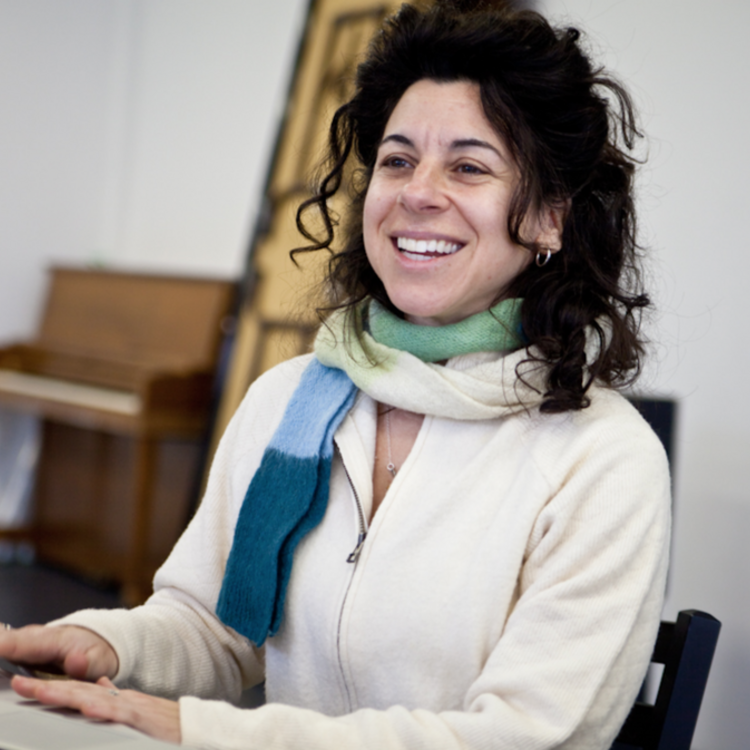
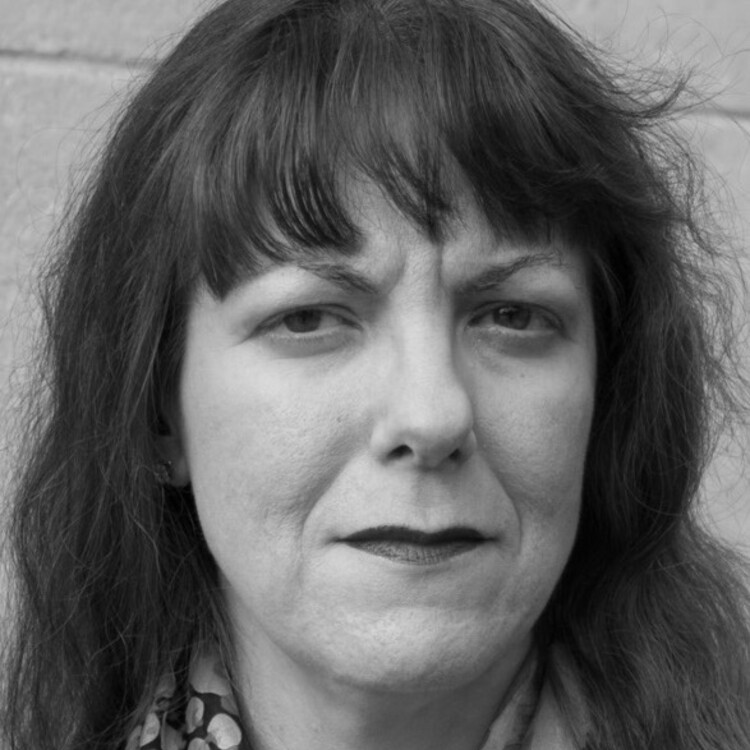
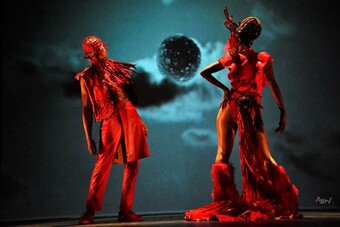



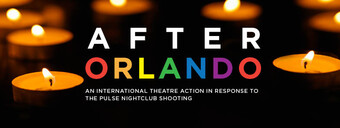



Comments
The article is just the start of the conversation—we want to know what you think about this subject, too! HowlRound is a space for knowledge-sharing, and we welcome spirited, thoughtful, and on-topic dialogue. Find our full comments policy here